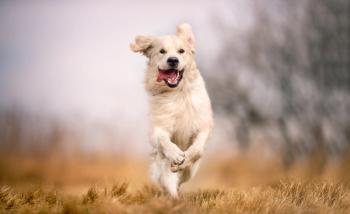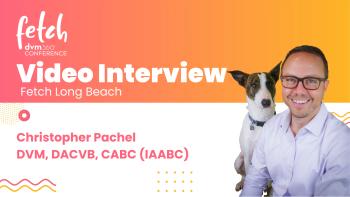
Commentary: Exploring the canine brain
Dognition helps pet owners understandand bond withtheir dogs.
Recently a number of us who work on dvm360 and associated publications have been immersed in an experience called Dognition. Dognition is a program (see
As a recent dog owner (and a self-proclaimed cat person/non-dog person until I married into dog ownership), I was intrigued and decided to join the group participating in Dognition as part of an editorial project on pet enrichment. Maybe I'd learn something that would help me become a better dog mom.
What I learned is that asking a dog to solve problems with his brain-even if he's highly motivated by the treat being used as incentive-is exhausting for both dog and owner. Having been warned by some colleagues who did all two and a half hours testing at once and found it grueling, my husband and I decided to break up the experience over a number of days. Even so, Alvin was more than ready to be done after 30 to 45 minutes of problem-solving (or the absence thereof), and so were we.
I also learned that it's really fun to have a structured way to interact with your dog. We spend time regularly going through Alvin's training repertoire and attempting to expand it (with mixed results), but this was much more involved and gave us more insights into how his brain works. One finding: When Alvin focuses, he can usually figure out the right answer (although Dognition insists with every data point that there is no “right” answer). But getting him to maintain his focus even for 30 seconds is tough. Closing the doors to the room and not letting anyone walk through helped a lot. Another surprise: I thought any dog would be able to find a simply hidden treat (under a cup or sheet of paper, for example) based on smell. But Dognition says no, despite dogs' excellent sense of smell, they actually rely on other cues in these situations. And darn if they're not right!
In the end I learned that Alvin is a Socialite (not surprising given his ecstasy when anyone new shows up), cunning (it took him less than two seconds to take that treat when our backs were turned) and an all-around exceptional dog. We didn't need a test to tell us that, but when the experts in canine cognition tell you so, you take it!
Newsletter
From exam room tips to practice management insights, get trusted veterinary news delivered straight to your inbox—subscribe to dvm360.




